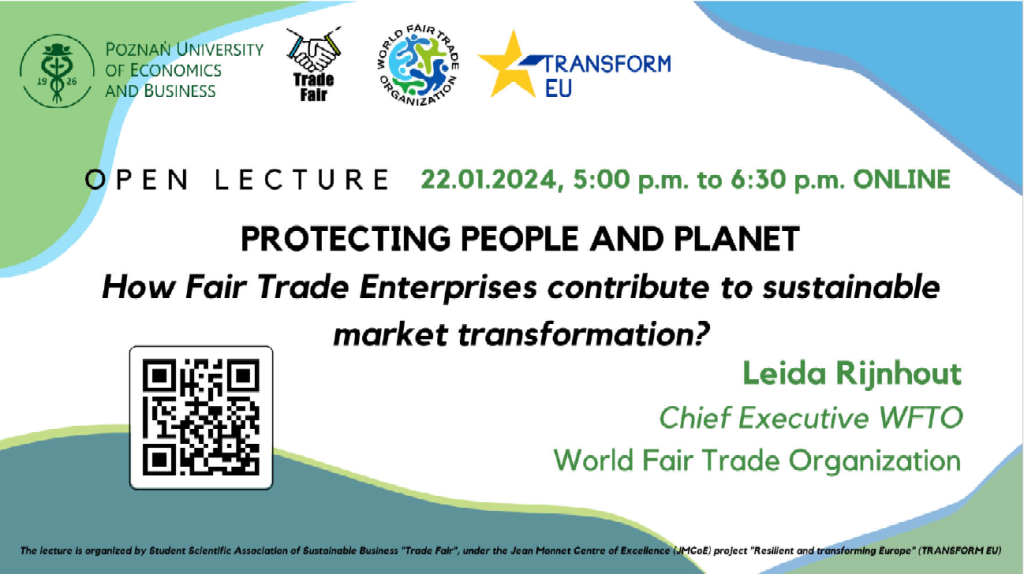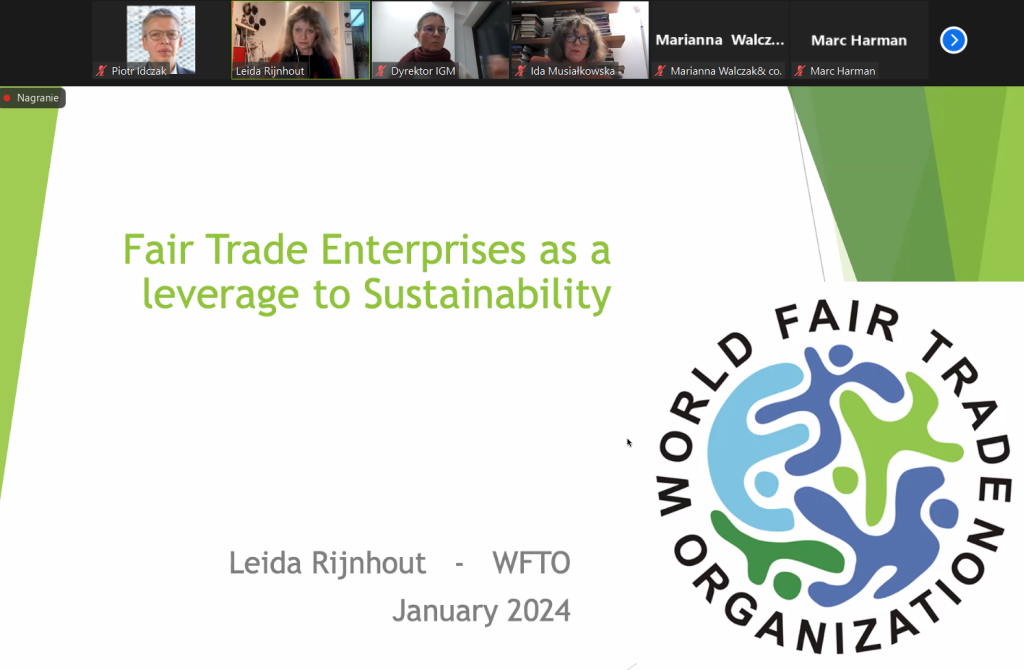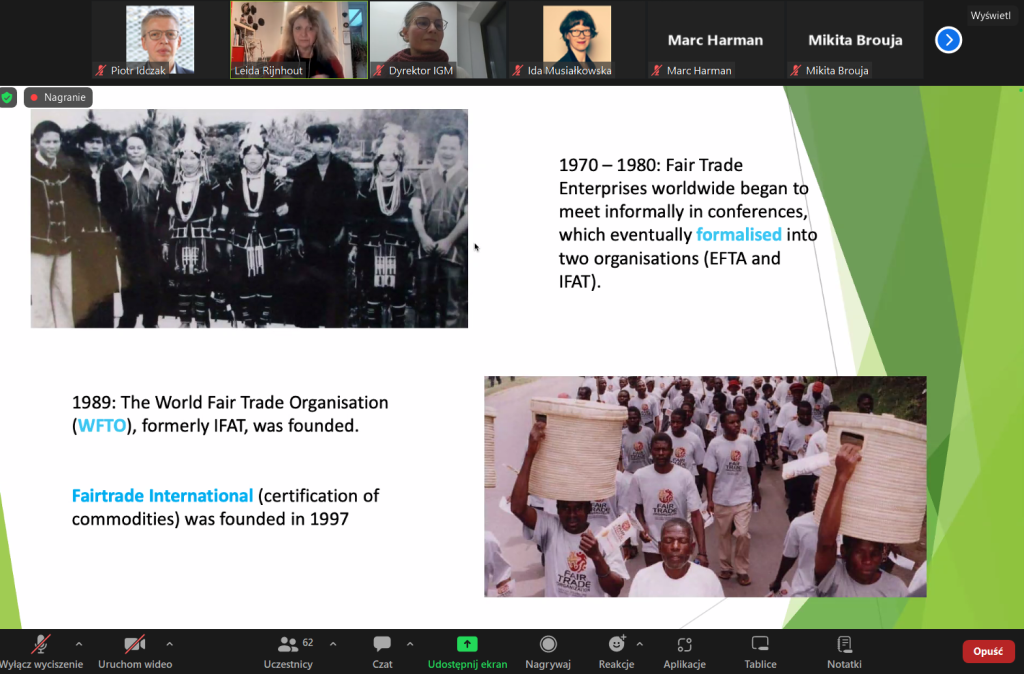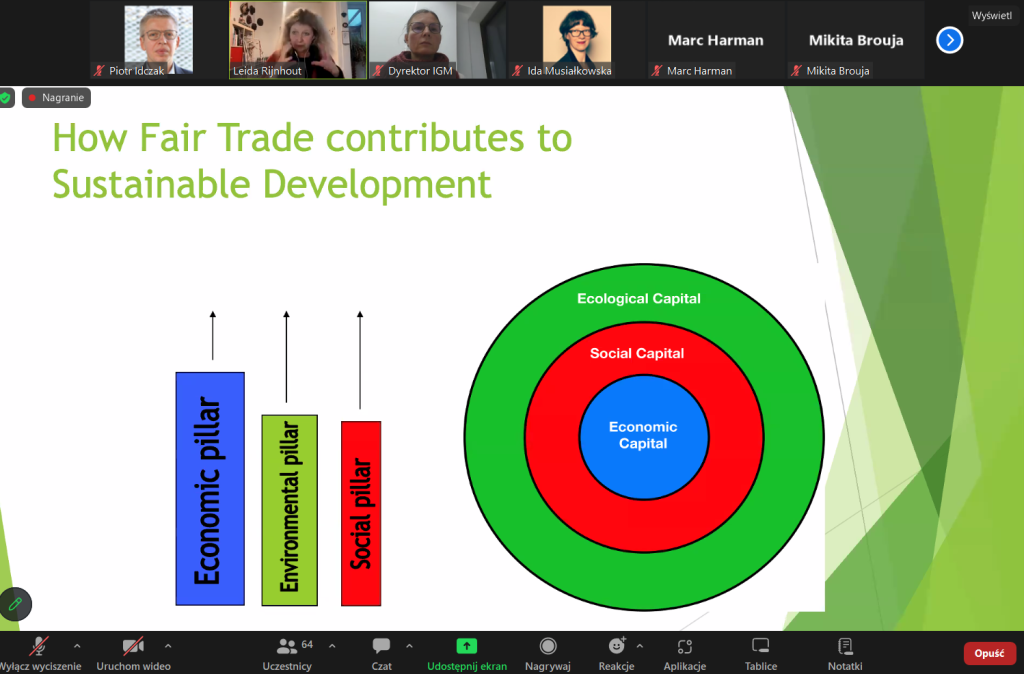“Protecting People and Planet. How Fair Trade Enterprises Contribute to Sustainable Market Transformation”

On January 22, 2024, from 17:00 to 18:30 CET, a lecture entitled “Protecting People and Planet: How Fair Trade Enterprises Contribute to Sustainable Market Transformation” was held. This event was organized by the Student Scientific Circle of Sustainable Business TRADE FAIR at the Department of European Studies, and supported by the department’s staff as part of the Jean Monnet Centre of Excellence – Transform EU project.
The keynote speaker was Leida Rijnhout, Director General of the World Fair Trade Organization (WFTO), who has extensive experience in development assistance in countries of the Global South and in sustainable development on a global scale, including participation in the negotiations of Agenda 2030. The event also featured Tadeusz Makulski, President of the Polish Fair Trade Association (PSSH), the only Polish member of the WFTO. The meeting was moderated by Dr. Magdalena Śliwińska of the Department of European Studies.
The session attracted 76 participants, including both students and university employees.
In her speech, Leida Rijnhout presented the history of Fair Trade, as well as the current role of organizations associated with the Fair Trade movement and their impact on the transformation of global markets in the context of socially responsible production and consumption, and the implementation of the UN Sustainable Development Goals. She also emphasized the various perspectives on sustainable development, arguing that modern sustainable development thinking should recognize that the economy is entirely dependent on human capital and the environment.
The presentation was followed by a question and answer session. Participants were actively engaged, posing questions to the speaker and sharing comments and insights on the Fair Trade movement and its role in sustainable market transformation. Tadeusz Makulski, drawing on his many years of experience, offered interesting insights into the limitations of the development of the Fair Trade movement and market in Poland.
In conclusion, Dr. Magdalena Śliwińska emphasized that although Fair Trade companies account for a small share of global sales, their presence and operations significantly impact other market participants by raising public awareness about the dire living and working conditions of the poorest producers and workers in the global market. She highlighted how creating a market for Fair Trade products that meet socially responsible production standards, in accordance with Fair Trade criteria, demonstrates that profit can coexist with business models that fully align with the UN’s sustainable development goals.
We thank all the participants for their active engagement and invite everyone to future events!
Look at the photo gallery


